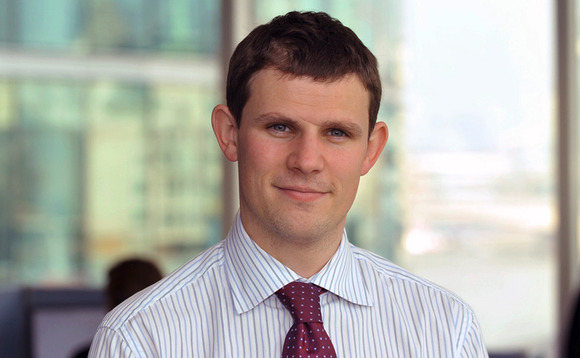
In Profile: HgCapital

HgCapital’s sector-specific approach marks the GP out from its pan-European counterparts. Katharina Semke finds out how the private equity firm selected this strategy and how it made it work
HgCapital's history began in 1990 when it was part of Mercury Asset Management. After Mercury was acquired by Merrill Lynch in 1997, Ian Armitage and Frances Jacob, HgCapital's founders, spun out the private equity business.
Steven Batchelor, director of HgCapital's client service and fundraising team, who joined the firm in 2003, has seen the GP's headcount increase from 50 to 120. While the number of employees more than doubled, fund sizes have remained fairly stable. MUST 4 closed on £750m in July 2002, while its latest vehicle HgCapital 7 closed on £2bn in April 2013. The numbers show the team grew disproportionately to the fund, something Batchelor acknowledges: "If you want to run a specialised model, you have to resource yourself appropriately." He explains the GP has a dedicated team for each of the three sectors it focuses on, TMT, services and industrials, and therefore employs more staff than many other private equity firms.
Despite those three sectors forming the framework for HgCapital's specialisation, it is the sub-sector focus that Batchelor sees as most important to its strategy: "Sub-sectors are the areas we give most thought and attention to," he says. HgCapital claims it can identify sub-sectors that grow faster than GDP and remain resilient across market cycles. It believes the size of its team allows it to spend more time on deal sourcing than many of its competitors. "We have tracked the sub-sectors for an average of five years and the deals we invested in we tracked for three years on average beforehand," says Batchelor.
On a mission
One sub-sector example is the tax and accounting SME software space, in which the GP has invested since 2001. It appreciates that so-called "mission-critical" services, once in place, are rarely replaced by companies. Therefore, the customer retention rate is typically high even if prices are being raised annually.
Since its founding, HgCapital has discontinued investing in two sectors, healthcare and consumer. The latter was abandoned around eight years ago, but was already marginal, with never more than 10% of invested fund capital. Ceasing investment in the sector was a logical step for the GP, since its focus had shifted towards B2B offerings in recent years. A lack of control in terms of marketing and other issues was also a factor in the decision.
Investments in healthcare, meanwhile, were not fully stopped, but discontinued to be a standalone sector focus. Instead, it was incorporated into the service segment. This change came about due to a number of characteristics the GP did not feel comfortable with. The often high customer concentration and government intervention were just two of the reasons. Batchelor explains the incorporation within the other sectors: "We now only invest in healthcare opportunities with a TMT or tech-enabled services angle, for example healthcare software."
Location, location, location
Batchelor explains that, because of the GP's sector approach, it is less focused on a certain geographical region: "Most European private equity firms tend to be geographically driven. We are the opposite." He believes the sectors HgCapital focuses on cover a large proportion of the countries in which the GP operates. Germany and the UK are the most important countries for the GP and are also those where it has local offices. Batchelor says Germany is dominated by industrials, which make up 80% of the market, and the UK by services, which accounts for 80% of the business landscape. The other two core markets for HgCapital, Benelux and the Nordic region, are evenly split between services and industrials, as well as a mature TMT presence.
Despite its focus on the above mentioned regions, HgCapital is not averse to venturing into other parts of Europe. "To an extent we invest out of our core geographies, but that will always be sector or sub-sector led," Batchelor says. The buyout of Italian financial management software producer TeamSystem is one example. The business falls into the tax and accounting software sub-sector, which is why the GP felt comfortable with it. HgCapital acquired TeamSystem in a €565m tertiary buyout from Bain Capital, paying 11.3x EBITDA for the company in August 2010. It sold a majority stake to Hellman & Friedman in December 2015, but retained a minority.
Another acquisition was Milan-based EidosMedia, a content management software for media and financial services companies, from previous backers Wise and Aksia Group in November 2015. However, investments in southern or eastern Europe remain the exception because those regions offer less potential deals in the markets HgCapital focuses on.
The GP hopes its large team gives it an edge in regards to deal sourcing. Batchelor says HgCapital typically tries to find situations itself, but uses intermediaries and the adviser market as well. The GP also looks for off-market situations, particularly in the German market, which are not on the radars of advisers and other private equity firms. It claims to have a long-term approach, where it builds relationships with management teams, but this can take anywhere between a few months and several years. The same applies to its tracking of companies, which tends to be long-term and rather time consuming.
Portfolio highlights
HgCapital has invested in 14 companies in the software industry since January 2011, according to unquote" data. One example is UK creative software provider The Foundry. The GP bought the business from Carlyle Group in May 2015 in a deal that gave the business an enterprise value of £200m.
The second most important sector for the GP is support services, where it has acquired seven businesses since January 2011. In February 2016, HgCapital acquired a majority in compliance business Citation from ECI Partners. HgCapital Trust, HgCapital's listed feeder fund, invested £10.5m to support the deal.
In February 2014, HgCapital exited Manx Telecom. The business raised £160.2m by listing on AIM. HgCapital and CPS Partners sold their interests for £67.2m. The GP acquired Manx for £158.8m from Telefónica in June 2010.
In August 2014, HgCapital sold its stake of around 65% in UK care provider Voyage Care to Duke Street and Partners Group for £375m. HgCapital and SL Capital Partners acquired Voyage in a £322m deal in April 2006.
In June 2015, HgCapital sold SimonsVoss, a German digital lock maker, to Irish trade buyer Allegion for €210m. In May 2010, HgCapital acquired two thirds of the digital lock maker for €116.6m from its private owner.
Nic Humphries

Matthew Brockman

Steven Batchelor

Latest News
Stonehage Fleming raises USD 130m for largest fund to date, eyes 2024 programme
Sponsor acquired the public software group in July 2017 via the same-year vintage Partners Group Global Value 2017
Stonehage Fleming raises USD 130m for largest fund to date, eyes 2024 programme
Czech Republic-headquartered family office is targeting DACH and CEE region deals
Stonehage Fleming raises USD 130m for largest fund to date, eyes 2024 programme
Ex-Rocket Internet leader Bettina Curtze joins Swiss VC firm as partner and CFO
Stonehage Fleming raises USD 130m for largest fund to date, eyes 2024 programme
Estonia-registered VC could bolster LP base with fresh capital from funds-of-funds or pension funds









